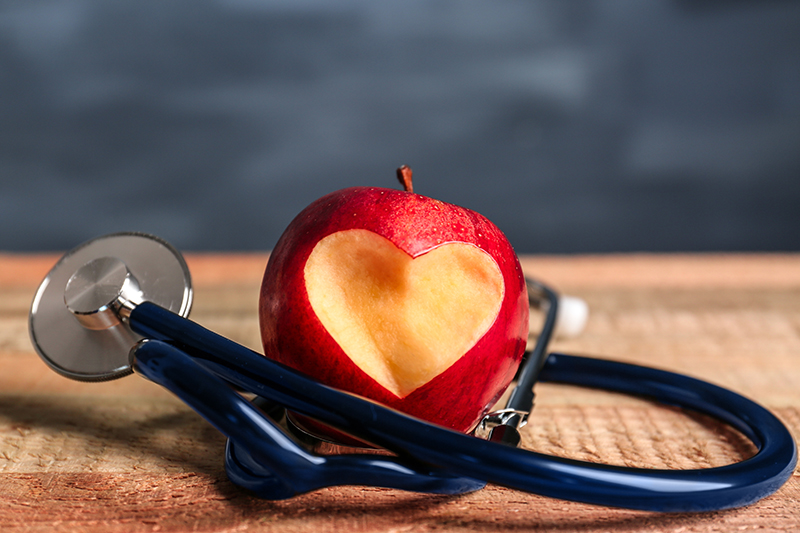Raspberries to Reduce Inflammation and Lower Cholesterol
 Berries of all kinds are a wonderful addition to any diet. Let’s look specifically at the nutrient dense raspberry.
Berries of all kinds are a wonderful addition to any diet. Let’s look specifically at the nutrient dense raspberry.
A one cup serving contains just 64 calories, 8 grams of dietary fiber, and 54% of your daily vitamin C needs.
A diet high in fiber promotes lower cholesterol and blood pressure. Studies have found for every 1-2 grams of soluble fiber each day lowers LDL cholesterol 1%. A 1 cup serving of raspberries provides 1 gram of soluble fiber.
Raspberries are low in fat and high in antioxidants, such as vitamin A, vitamin E, and vitamin C. Vitamin C is an antioxidant that boosts our immune system, increases nitric oxide, promotes wound healing, lowers triglycerides, and prevents free radical damage associated with LDL cholesterol. (Vitamin C plays many more roles in our health than what I’ve listed.)
How to Stock a Heart Healthy Kitchen
 If you keep heart healthy foods on hand and easily accessible you will be much more likely to see success in your efforts to lower cholesterol and blood pressure. If you keep unhealthy foods within reach you will make it much harder to achieve your heart health goals. Don’t rely on will power! Stock you kitchen for success. Here are some essentials to keep on hand:
If you keep heart healthy foods on hand and easily accessible you will be much more likely to see success in your efforts to lower cholesterol and blood pressure. If you keep unhealthy foods within reach you will make it much harder to achieve your heart health goals. Don’t rely on will power! Stock you kitchen for success. Here are some essentials to keep on hand:
Whole grains, such as barley, oats, rice, buckwheat, and quinoa, are rich in fiber, antioxidants, vitamins, and minerals. These nutrient dense grains promote a healthy heart.
Olive oil
Continue reading
Heart Health: Are you selecting whole grains?
 By selecting whole grains you consume more nutrient dense foods that provide higher fiber content . . . all of which equals a heart healthy choice. Whole grain products contain all layers of the whole grain – the bran, the germ, and the endosperm. When it comes to selecting whole grains, you have many more options than just being sure to grab 100% whole wheat bread when grocery shopping. There are many whole grain varieties available to you.
By selecting whole grains you consume more nutrient dense foods that provide higher fiber content . . . all of which equals a heart healthy choice. Whole grain products contain all layers of the whole grain – the bran, the germ, and the endosperm. When it comes to selecting whole grains, you have many more options than just being sure to grab 100% whole wheat bread when grocery shopping. There are many whole grain varieties available to you.
Oats
Oats almost never having the bran or germ removed during processing. This means when you read a food label and see oats or oat flour listed as an ingredient, it’s safe to know this is a whole grain ingredient. Oatmeal has been linked to lower cholesterol levels.
Continue reading
5 Steps to Achieve a Healthy Heart

You don’t have to begin a drastic diet in order to achieve your heart health goals. Big results can be achieved by improving your daily habits one step at a time.
Here are 5 steps you can implement now for a healthy heart:
Step 1 – Add fruits and vegetables to your daily diet
That’s right, I’m not telling you to eliminate a food, but to add foods. Fruits and vegetables are essential. Add fruit and/or vegetable to every meal or snack to boost your intake of this necessary food group. It’s estimated that our intake of vegetables is usually only 59% of what it should be and fruit only 42%.
Step 2 – Switch processed grains for whole grains
Continue reading
Choline and Your Health
 Are you even familiar with the B vitamin choline? There is a good chance you are not. The Institute of Medicine didn’t even establish a dietary reference intake for this nutrient until 1998.
Are you even familiar with the B vitamin choline? There is a good chance you are not. The Institute of Medicine didn’t even establish a dietary reference intake for this nutrient until 1998.
Choline, like magnesium, plays a role in just about every bodily system. Two compounds are derived from choline – acetylcholine and lecithin. Acetylcholine is a neurotransmitter for the peripheral and central nervous systems. Acetylcholine may protect again certain age-related dementias. Lecithin is a more generic term encompassing yellowish-brown fat tissue.
Choline Sources
The body can produce choline in small amounts, but not in large enough quantities to support good health. You must consume choline from dietary sources. Choline can be found in many foods, such as:
New Warnings Added to Statin Drug Label by the FDA
 Do you take statin medication to keep your cholesterol levels within normal?
Do you take statin medication to keep your cholesterol levels within normal?
A warning label is being added to statin medications, including Lipitor, Crestor, and Zocor. The warning is to make users aware that the medication may raise blood sugar levels and cause memory loss.
Statins are frequently prescribed by doctors because studies have shown the effectiveness of the drug to reduce the risk of heart attack and heart disease. However, it’s important that patients and doctors are well aware of the negative side effects linked to the medication.
In addition to elevated blood sugar and memory loss, some of the potential side effects of statin medications include:
Continue reading



